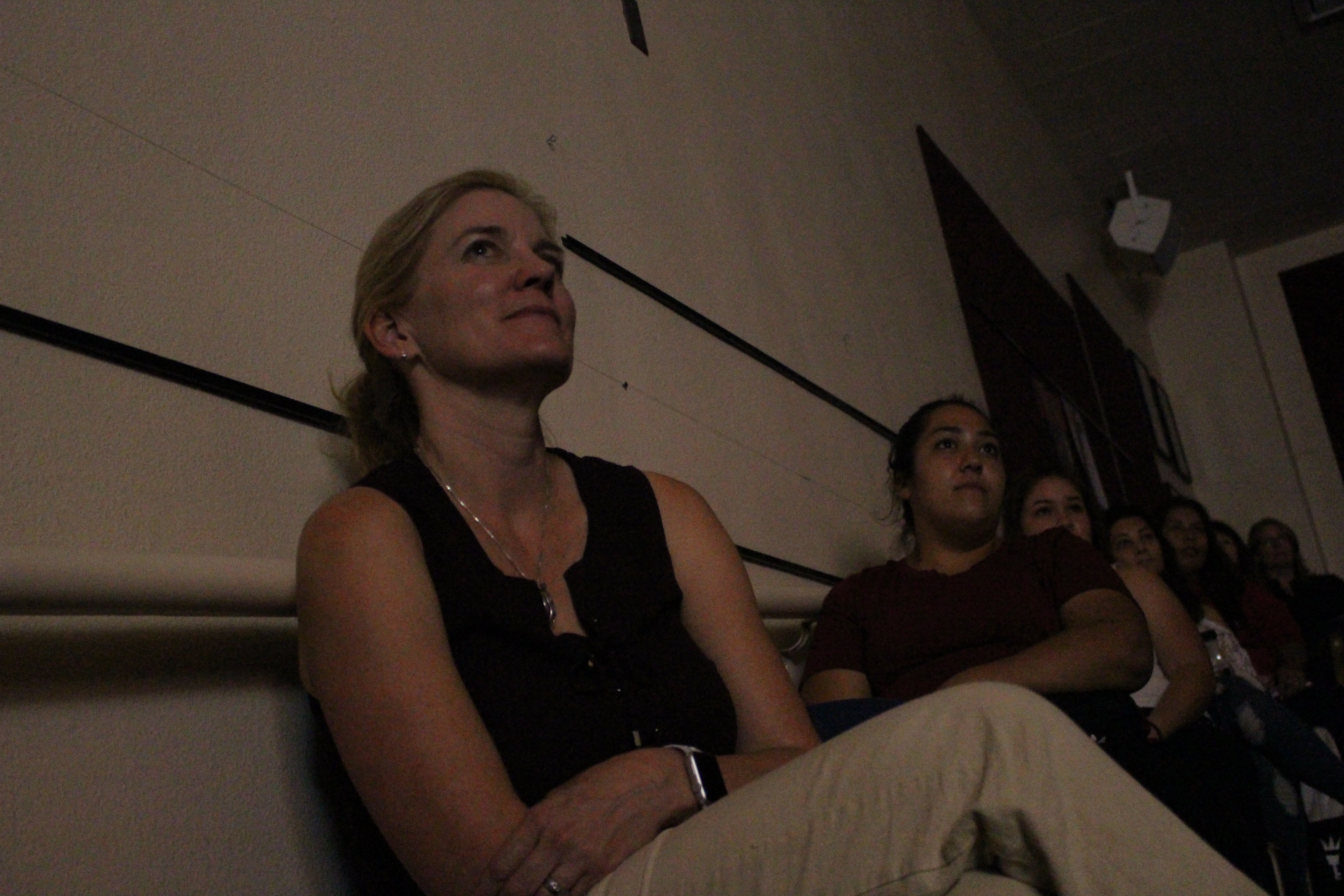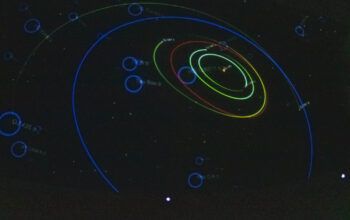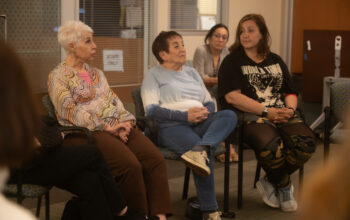There wasn’t a dry eye in the room during the screening of “No Small Matter” on Wednesday night.
Child Development Club showed their first film screening, bringing over 50 students. Pierce College was one of the first community colleges to present “No Small Matter” to their students.
The feature-length documentary film explains the importance of high quality early care and education along with an engagement campaign to inspire, teach and reinforce.
Chair of Child Development Patricia Doelitzsch, who led the discussion after the film, emphasized on the teachers impact on children and the potential of early education.
“I wasn’t surprised,” Doelitzsch said. “I was crying myself but I got it together when the lights came on. It was just reinforcing for everybody to hear that they’re not by themselves and I think you can feel that when all of the sudden the advocacy kicked in how powerful that is.”
Doelitzsch talked about the impact of preschool teachers providing children with a solid foundation.
“It’s really hard to be in this position and in this department looking at this group of mostly ladies and gentlemen and saying that’s just going to be a struggle to support yourself,” Doelitzsch said. “So then, it has to come from the heart and it has to come from that desire to be the piece of change, to be that person to make that change happen.”
She said it’s a struggle teaching in the Child Development field.
“The living wage is very difficult to get to be a preschool teacher. The only way to have a living wage is to teach at a public school, which is not a high quality preschool system right now,” Doelitzsch said.
One of the most emotional and hardest parts of the movie was to see other parents struggle, according to Cortes.
“At the same time knowing that It is very consistent with a lot of our own population and students who struggle with their own childcare,” Cortes said.
Child Development student Doris Reyes was one of many who was engaged in the discussion.
“I feel sad because we go to school, we do our Bachelors, we put our effort, but it looks like they don’t really care,” Reyes said.
Doelitzsch said that a lot of transitional kindergartens and ETK’s are academic and are not providing children what they exactly need.
“That’s where the advocacy kind of comes in to tell the governor and to tell the LAUSD that there should be more playdates and there should be more developmental programs which is really my secret plan,” Doelitzsch said.
Assistant Professor Dr. Alma Cortes said the purpose of the screening was to shed light on the importance of high quality early child education and how important the profession of teaching young children is.
“We also wanted to shed a little bit of light on the advocacy around it. We didn’t really think it was going to be as exciting as it was but we are really excited that students took it, owned it and now want to maybe do something about it,” Cortes said.
According to Doelitzsch, a couple generations ago, people could get children support from their families or communities. Doelitzsch said that people are removed from their support systems.
“It’s so hard to ask a teacher for help but this is kind of a strength to realize what you don’t have and speak it out,” Doelitzsch said. “That family component is one of those key issues in breaking those cycles of the choice between continuing a home environment of trauma or toxic stress or even abuse and we see the most effective programs to provide that support and help the whole family.”
According to Doelitzsch, Child Development Department is planning on organizing another “No Small Matter” screening this semester.




